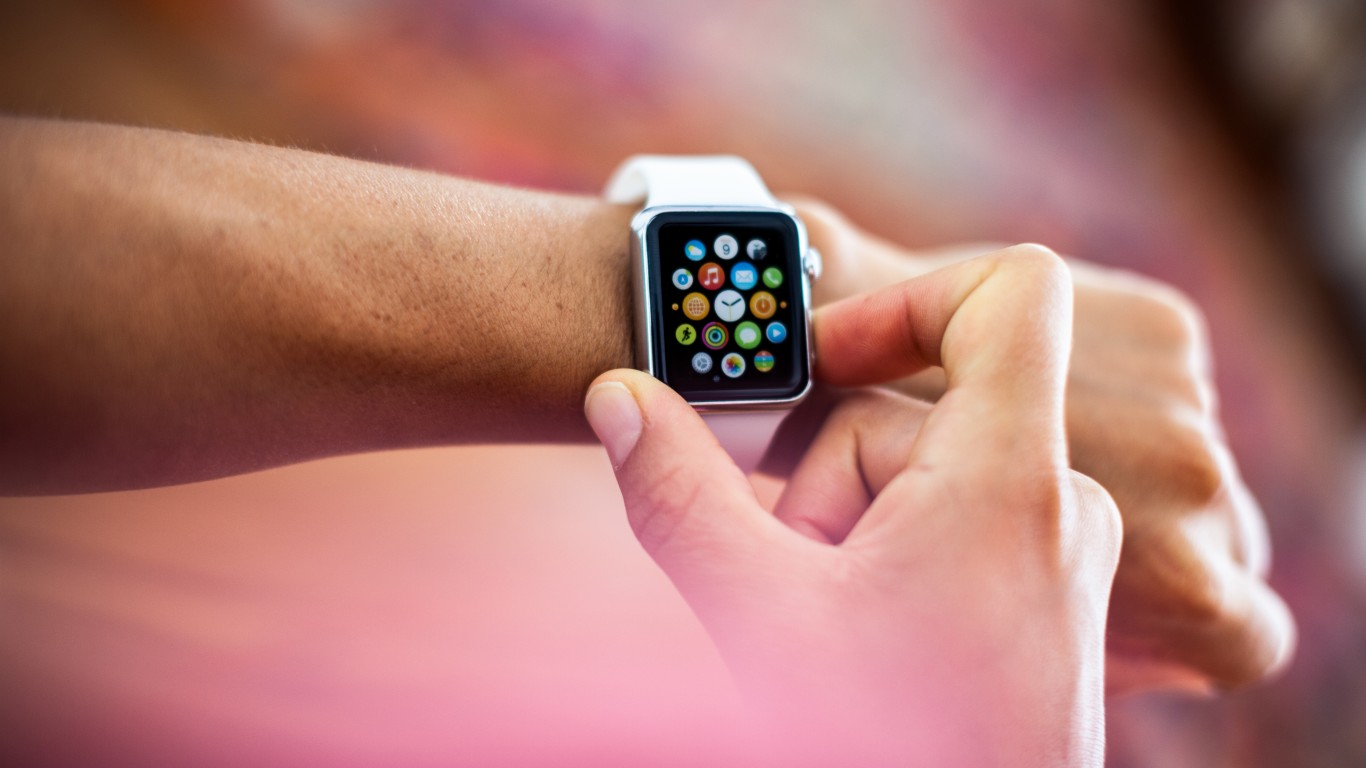Technology
What's Up With Apple: Autonomous Cars, Watch Predicts COVID, and More

Published:

While Apple Inc. (NASDAQ: AAPL) may have scuttled its discussions with Hyundai about building the cars, the company has continued to test its self-driving technology on California roads and highways.
The sharp-eyed folks at Bloomberg found reports from the state detailing miles driven by all companies testing self-driving cars and disengagements (that is, instances where the driver had to retake control of the car from the self-driving software).
Apple-equipped cars were driven 18,805 miles in California last year, more than double the 7,544 miles driven in 2019. On average, there was a disengagement every 145 miles, less often than the 118 miles reported in 2019.
GM’s Cruise division put 770,000 miles on their cars last year and reported just 27 disengagements, or one every 28,520 miles. Cruise’s chief technology officer, Kyle Vogt, said the company experienced no disengagements in the final three months of last year on more than 200,000 miles of driving.
Alphabet’s Waymo division put 628,839 miles on its fleet last year, less than half the mileage reported in 2019. Waymo had 21 disengagements, or one about every 30,000 miles.
While mass production of an Apple Car may be several years in the future, the company continues to test its self-driving technology. The numbers show the company has a long way to go.
A new study from researchers at Mount Sinai recruited participants, including staff, willing to use a health data app on their iPhones along with the heart rate monitor on an Apple Watch. The results, published in the Journal of Medical Internet Research, found that the combination “can effectively predict a positive COVID-19 diagnosis up to a week before certain currently available nasal swab tests.”
The researchers watched the participants’ heart rate variability (HRV) and matched that with other symptoms of COVID-19 such as fever, dry cough and loss of taste and smell. According to a report at MacRumors, the so-called Warrior Watch Study “was not only able to predict infections up to a week before tests provided confirmed diagnoses, but also revealed that participants’ HRV patterns normalized fairly quickly after their diagnosis, returning to normal roughly one to two weeks following their positive tests.”
According to a report from Nikkei Asia, Apple is teaming up with chip foundry Taiwan Semiconductor Manufacturing to develop “ultra-advanced display technology” at an Apple facility in Taipei. Apple is said to want to develop “micro OLED displays that are built directly on semiconductor wafers and plans to use the new displays in future augmented reality (AR) devices.”
Because the micro OLED displays are built on a chip wafer, they can be made thinner, lighter and less power-hungry than displays built on conventional glass substrates.
Thank you for reading! Have some feedback for us?
Contact the 24/7 Wall St. editorial team.